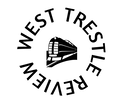Hombres de Maíz
As a girl, I almost stepped on a kernel of corn – probably it was only seed corn, spilled from a bag hauled onto a truck – but abuela made a sound that stopped my shoe in midair, a warning tone, a pointing gesture that pulled my foot back, kept my tiny Ked from trampling the maize.
“The ancients say we’re made of corn,” she said. “Hombres de maíz.”
I’d heard the story: the Creators used corn maza to form the first men – four of them – and the first women, four also. And corn kernels, shaped like teeth, brought speech to humanity, the first language, for praising the Creators.
So I line up words like a row of kernels, syllables that burst in the mouth. I follow silk strands – filaments of thought – down to the very base of the ear. I peel back the husk around my heart and offer it to all listeners, to my ancestors. I have nothing else to give but these words like beats on a slit drum, sentences like bone flute notes, stanzas like malleted melodies on a marimba. The very gift that came from corn, I give back, completing the circle.
My father scolded me one day. “You mustn't use that,” he said as I raised a pizza wheel, ready to halve and quarter a tortilla for chips. “A blade should never touch a tortilla. Like a sacred loaf of bread,” he said, “tear it with your hands.” He stood straight as a stalk, this man of corn. And though my kids were hollering and the phone was beeping, and I wasn’t sure if anything sacred could come out of a twist-tied plastic bag from Kroger, I put down the pizza wheel. And thanked him.
“The ancients say we’re made of corn,” she said. “Hombres de maíz.”
I’d heard the story: the Creators used corn maza to form the first men – four of them – and the first women, four also. And corn kernels, shaped like teeth, brought speech to humanity, the first language, for praising the Creators.
So I line up words like a row of kernels, syllables that burst in the mouth. I follow silk strands – filaments of thought – down to the very base of the ear. I peel back the husk around my heart and offer it to all listeners, to my ancestors. I have nothing else to give but these words like beats on a slit drum, sentences like bone flute notes, stanzas like malleted melodies on a marimba. The very gift that came from corn, I give back, completing the circle.
My father scolded me one day. “You mustn't use that,” he said as I raised a pizza wheel, ready to halve and quarter a tortilla for chips. “A blade should never touch a tortilla. Like a sacred loaf of bread,” he said, “tear it with your hands.” He stood straight as a stalk, this man of corn. And though my kids were hollering and the phone was beeping, and I wasn’t sure if anything sacred could come out of a twist-tied plastic bag from Kroger, I put down the pizza wheel. And thanked him.
May 2024
A Guatemalan-Anglo American, Rebecca Balcárcel is the award-winning author of Shine on Luz Véliz and The Other Half of Happy and the recipient of Bennington's Jane Kenyon Poetry Prize. Rebecca loves popcorn, her kitty, and teaching her students as Associate Professor of English at Tarrant County College. Look for Rebecca’s short story in Boundless, an anthology by multi-racial/multi-cultural authors, which she also co-edited. Find Rebecca on YouTube as the SixMinuteScholar.
Art: Psilocybe Galdalfiana by Kat Cervantes
Powered by Women

